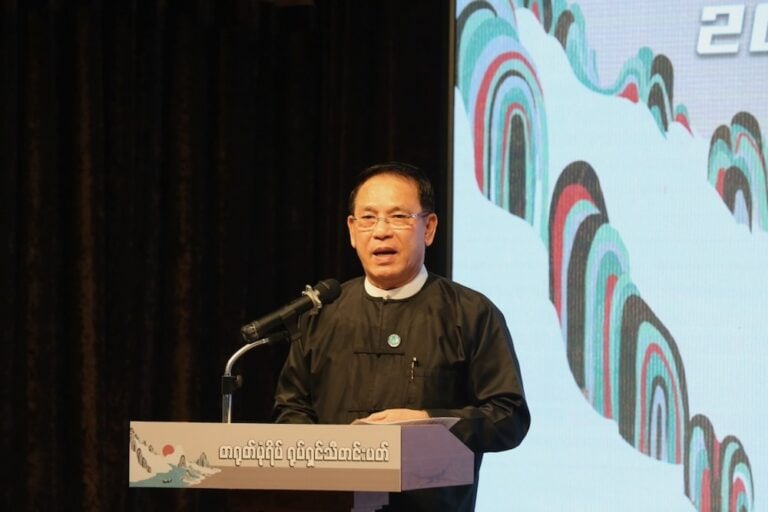(Mizzima/SEAPA/IFEX) – An editor of a monthly magazine in Burma has been forced to resign for publishing a poem about the historic town of Depayin in its June 2008 issue, Mizzima.com, a SEAPA partner, reports. Burma’s Censorship Board, which operates under the Ministry of Information, summoned and questioned the editor, Htay Aung, on 24 June. […]
(Mizzima/SEAPA/IFEX) – An editor of a monthly magazine in Burma has been forced to resign for publishing a poem about the historic town of Depayin in its June 2008 issue, Mizzima.com, a SEAPA partner, reports.
Burma’s Censorship Board, which operates under the Ministry of Information, summoned and questioned the editor, Htay Aung, on 24 June. He was later ordered to resign from his magazine, “Cherry”.
The poem, written by poet Kyi Maung Than, touches on historical events connected to Depayin, once home to Burmese heroes such as King Ahlaung Sithu and the warrior Mahabandula. Perhaps more controversial in the eyes of Burmese officials, the poem laments that the town is a place that has also given birth to thugs.
The poem does not directly refer to any specific incident; however, Depayin is notorious as the place where Burmese opposition leader Daw Aung San Suu Kyi was ambushed five years ago. In May 2003, thugs said to be backed by Burma’s ruling military attacked the Nobel Peace Prize winner’s motorcade while she was on a political tour. The attack killed at least 60 of Aung San Suu Kyi’s supporters and injured several others. Suu Kyi herself was unharmed, but she was from there placed under house arrest.
Mizzima.com says former military intelligence officer Maj Aung Lin Htut, who defected from the army, in a recent interview with Voice of America (VOA) Burmese Service, said that the “Depayin massacre” was an orchestrated attack ordered by junta chief Senior General Than Shwe.
Journalists and the literary community in Rangoon are decrying the Htay Aung’s forced resignation.
“An editor should not be sacked from his job for just publishing a poem. But this kind of treatment will continue as long as the Censor Board exists and all the magazines and journals have to get permission for all their publications,” a veteran Burmese writer said on condition of anonymity.
Htay Aung’s replacement on the editorial team of “Cherry” magazine will also have to be approved by the Censor Board.
“Cherry” was first published in 1986. Htay Aung, a veteran editor who previously worked as the Executive Editor of “Beauty Max” magazine and as the Editor of Seik Ku Cho Cho publishing house, had been working with the magazine for just over a year.


